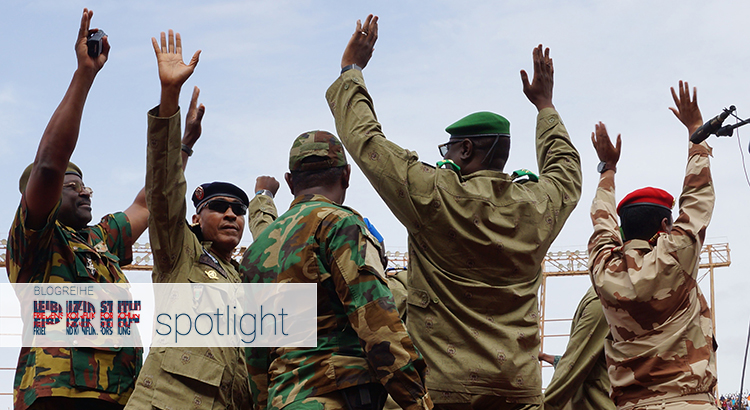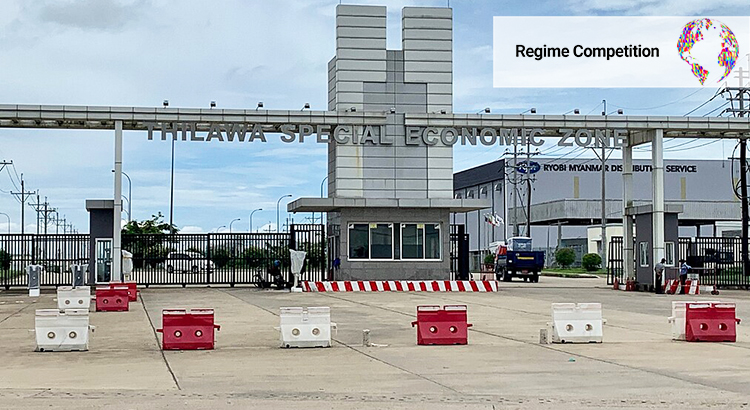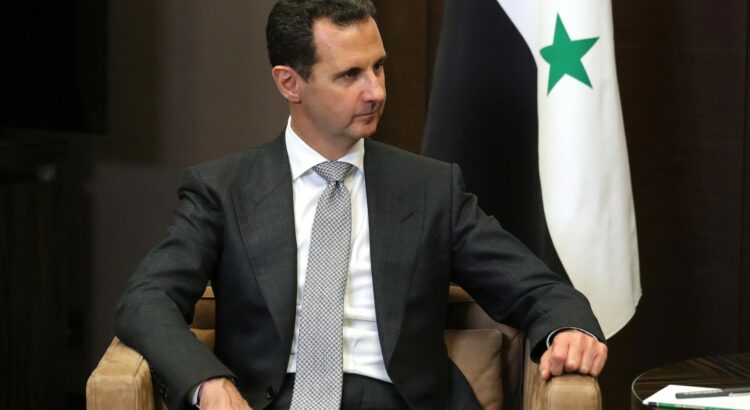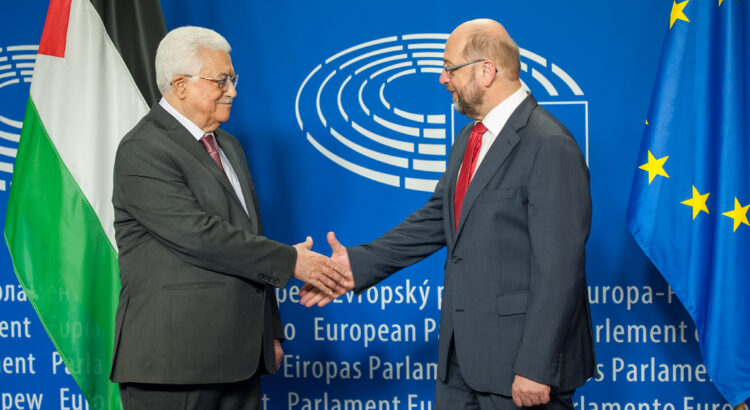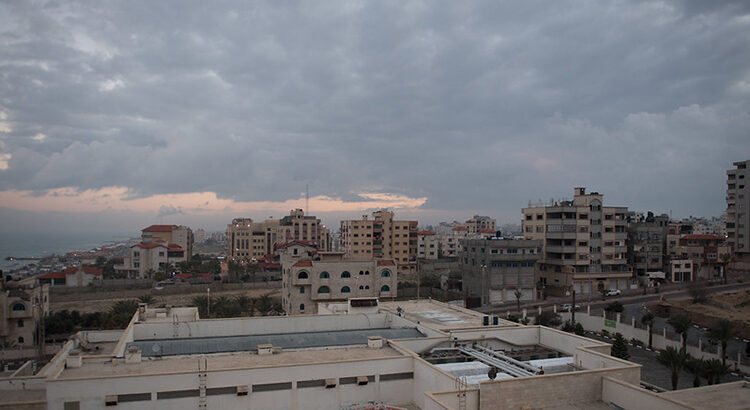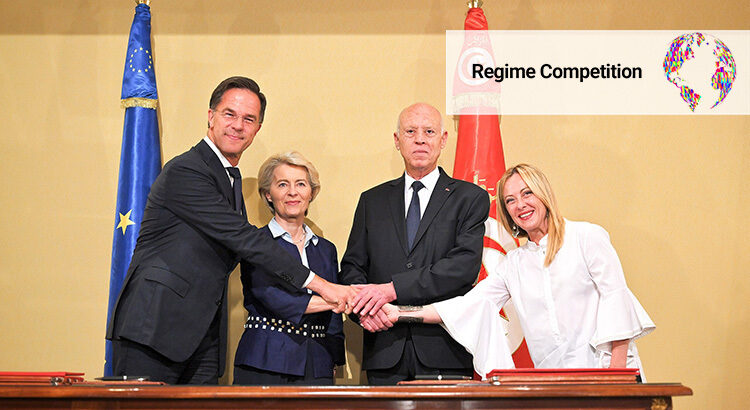The United Nations (UN) deploys peacekeepers worldwide to help build peace and security. Meanwhile, a serious problem persists: sexual exploitation and abuse (SEA) perpetrated by peacekeepers. Despite extensive efforts, including codes of conduct, sanctions, and training, reports of sexual abuse by peacekeepers continue within mission contexts. By drawing on UN documents aiming at ending SEA by regulating peacekeepers’ behaviour, this blog article examines the gender dimensions of the rules. I argue that a military masculinity culture is reflected in the UN rules that perpetuate instead of fight the risk of SEA.
Kategorie: English
Back in Business or Never Out? Military Coups and Political Militarization in Sub-Sahara Africa
This Spotlight discusses the resurgence of military coups in Sub-Saharan Africa. We argue that an analytical and political focus on coup events misses out on the bigger picture of military influence in politics. Introducing the new Multidimensional Measures of Militarization (M3) dataset, we demonstrate that African countries that were part of the recent wave of coups, previously showed signs of political militarization such as military veto powers and impunity. We conclude that these subtle forms of military influence can serve as early warning indicators for military coups.
Do regime differences shape developmental engagement? How China and Japan compete in post-coup Myanmar
The 2021 military coup in Myanmar has left the country significantly isolated on the world stage. Politically, foreign governments have avoided recognizing the junta rulers, although quasi-official engagement is still underway. Economically, foreign investments into Myanmar have dropped by 42% from 2021 to 2022, off levels that had already massively decreased since the 2017 Rohingya expulsion. However, despite the international outcry over the new regime’s open warfare against civilians and the escalating violence in Myanmar’s multi-front civil war, both China and Japan have remained engaged in development cooperation, pursuing ambitious projects for economic corridors and special economic zones (SEZs) that were contracted under the deposed civilian government; in the case of China, even some new projects have been launched.
Israel–Gaza: A German War Discourse
The way the escalation of violence in Israel, the Gaza Strip, and adjacent areas in the region is discussed in Germany is, in many respects, not surprising. It follows the structural dynamics of war discourses: the polarization into a friend–enemy schema; the negation of moral ambivalence; patterns of legitimation which suggest that the actions of one side are more than justified by the previous actions of the other side; the compulsion of the threat situation, discrediting reflection and distancing as inappropriate; the construction of unparalleled amorality; the circumvention of humane standards through dehumanization of the enemy; the simplification of an inherently complex situation.
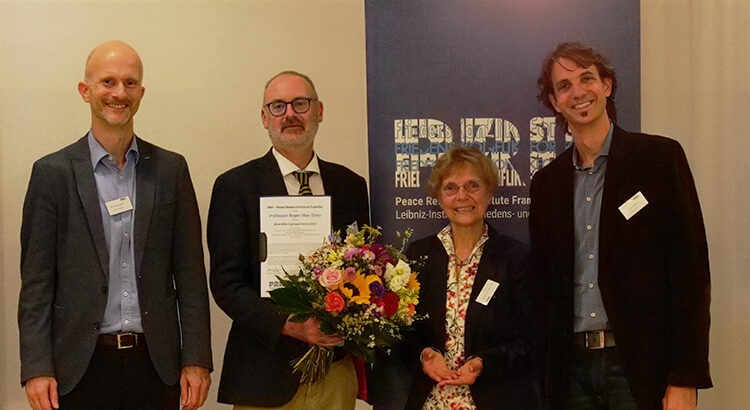
Ernst-Otto Czempiel Award 2023 for Roger Mac Ginty. Laudatio by Eva Senghaas-Knobloch
PRIF awarded this year’s Ernst-Otto Czempiel Award to political scientist Roger Mac Ginty. In doing so, the jury recognizes his 2021 monograph “Everyday Peace: How So-Called Ordinary People Can Disrupt Violent Conflict”, in which Mac Ginty explores how people in conflict zones can resist and disrupt totalizing war logics in everyday actions – even in combat. As the jury stated the author focuses a central peace policy problem and takes an extraordinarily innovative and transdisciplinary approach to it. The prize was handed over at PRIF’s Annual Conference on October 12, 2023. Professor Eva Senghaas-Knobloch, member of the jury together with Dr. Jörn Grävingholt and Professor Jonas Wolff, held the laudatio that is published here.
The French Arrest Warrant for Assad – Breaking New Ground in the Prosecution of Chemical Weapons Use?
On November 14, 2023, a French Magistrate Judge issued an arrest warrant for Syria´s President, Bashar al-Assad. The Court found sufficient evidence to initiate proceedings against Assad for complicity in war crimes and crimes against humanity, specifically the use of chemical weapons. Yet, as this blog post will point out, Heads of State enjoy certain immunities under international law, which the French arrest Warrant thereby violates. This warrant could, however provide a necessary impetus to re-evaluate how states view immunities.
How War in Israel Affects Russia’s War Against Ukraine
Since February 24th, 2022, the world has witnessed Russia’s war of aggression against Ukraine, which has become a serious challenge to many countries but particularly to those in the Euro-Atlantic community. A year and a half of brutal aggression has compelled Western governments to elaborate and implement a range of complex decisions at unprecedented scales and on a very short timelines. Further, Russia’s invasion has tested West’s ability to predict and assess security threats and to generate and sustain adequate political attention to the crisis. The shocking massacre of Israelis by Hamas on October 7th, 2023, has forced Western policy makers to react quickly to another crisis in another part of the world. Understandably, the Ukrainian government’s anxiety has increased with the uncertainty as to how it might be possible for the West would cope with two crisis situations simultaneously, and what—if anything— Kyiv should do about the situation in Israel.
The EU and the Israel-Palestine Test
Although the US has often prided itself of the status of sole interlocutor in the Middle East “conflict”, it has equally gained the reputation of an interested and biased mediator. In parallel, the European Community or EC – now European Union, EU – claimed to have a ‚more balanced’ approach on the Middle East file, which in turn garnered Palestinians’ trust. But during the current escalation, the EU has been woefully disunited. This blog argues that a more unified European voice can only come about by “walking the talk” of an Israel-Palestine policy/peace agreement based on purported basic European values.
Mass Evacuations in Israel’s War Against Hamas: Taking Precautions in Attack or Forced Displacement?
The attacks of Hamas against Israel were deeply shocking. Israel has a right to defend itself against Hamas and at the same time it is obliged to protect the civilian population of Gaza as far as possible from harm and injury. But Israel is currently facing a true dilemma. While Israeli Defense Forces try to evacuate as many residents as possible, Hamas uses civilians as human shields, including hostages. The humanitarian situation in Gaza is dire and mass evacuations further exacerbate the problem.
EU Democracy Support in the Southern Neighborhood: How the EU Contradicts its own Practices
For decades, the EU has declared that it aims to support democratization in its southern neighborhood. Yet, the EU’s cooperation with repressive rulers in other policy fields, such as energy, migration, security, and trade, contradicts the EU’s own democracy support objectives. European policymakers have apparently not learnt from the pre-2011 period. As we argue in our project SHAPEDEM-EU, the EU must embark on a journey of un-, de- and re-learning, and it must avoid contradicting practices in different policy fields. This can be done by introducing a democracy learning loop.

